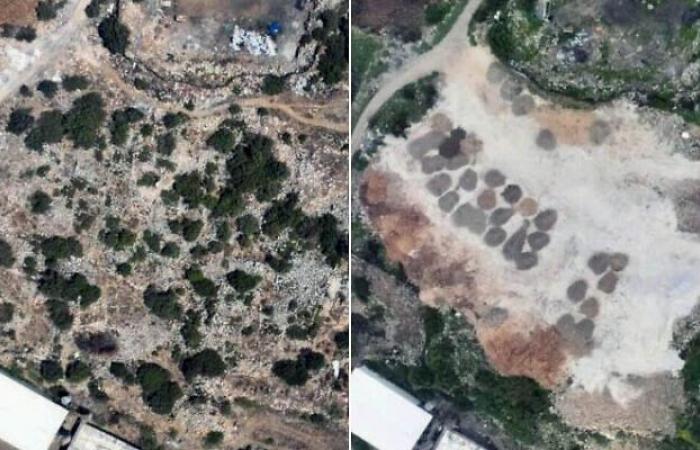An Israeli military court has handed down a prison sentence to Palestinian West Bank resident Jafar Muhammad Ali Ziad for destroying archaeological remains in Umm ar-Rehan. This decision could be a first in this area.
This “precedent-setting decision” sentences Ziad to 18 months in prison, plus 12 months suspended, and a fine of 65,000 shekels for having “vandalized and destroyed” an archaeological site, the daily said on Wednesday. Israel Hayom.
Located in the northern West Bank, Umm ar-Rehan falls within Area C of the Oslo Accords system: Israel exercises military and civilian authority and the Palestinian Authority is responsible for medical and educational.
Receive our daily edition for free by email so you don’t miss the best news. Free registration!
Already inhabited in Antiquity, this area is full of remains from the Hellenistic, Roman and Persian periods. It was abandoned in the 3rd century AD before being repopulated, archaeologists explain.
According to the information sources, Ziad was found guilty of having “illegally…using heavy materials and mechanical equipment” destroyed “valuable archaeological remains of the Byzantine period” between September 2023 and March 2024, in despite orders to cease all activity.
Last March, dozens of Palestinians were arrested after transforming an archaeological site in Umm ar-Rehan into a parking lot.
This sentence “will now be a reference and a sign of our severity in the face of the damage inflicted on our cultural and historical property,” declared the Minister of Heritage, Amichai Eliyahu, in a press release, adding that Umm ar-Rehan was linked to Jewish communities from the Second Temple period.
An activist organization dedicated to the protection of Jewish archaeological sites in the West Bank, Shomrim Al Hanetzach (Protectors of Eternity) welcomed this decision, according to it heralding “a new era” and a “radical change in the attitude of the police and the judicial system towards the perpetrators of depredations of heritage sites in Judea and Samaria”, using the biblical name of the West Bank.
The issue of archaeological sites in the West Bank is complex, with their protection technically placed under the aegis of a specialized department of the Civil Administration of the Ministry of Defense, responsible for overseeing civil affairs in the West Bank.
The Palestinian Authority also has a service responsible for protecting archaeological sites located in the areas it directly administers – areas A and B – which constitute approximately 40% of the West Bank.
However, many Jewish activists have long reported illegal construction and looting that threaten archaeological sites in the West Bank.
A proposal to transfer authority over archaeological matters in the West Bank to the Israel Antiquities Authority, currently responsible for the territory of Israel in the narrow sensewas discussed this week in committee by the Knesset.
The Civil Administration declined to comment on the matter to The Times of Israel.
You are one of our loyal readers
We are glad you read X articles from Times of Israël last month.
This is why we created the Times of Israeleleven years ago (nine years for the French version): offering informed readers like you unique information on Israel and the Jewish world.
Today we have a favor to ask you. Unlike other media outlets, our website is accessible to everyone. But the journalism work we do comes at a price, so we ask readers who care about our work to support us by joining the ToI community.
With the amount of your choice, you can help us provide quality journalism while benefiting from reading the Times of Israël without advertisements.
Thank you,
David Horovitz, editor-in-chief and founder of The Times of Israel
Join the Times of Israel community Join the Times of Israel community Already a member? Log in to no longer see this message






